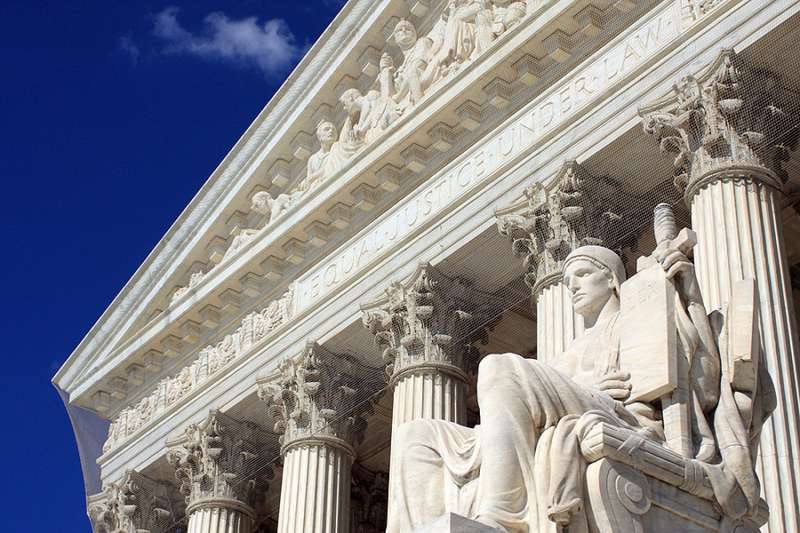Religious freedom advocates have mostly celebrated the Supreme Court’s ruling in Masterpiece Cakeshop v. Colorado Civil Rights Commission, although some commentators have expressed concern that the case was a “narrow” victory - won on specific facts of the case, not addressing broad Constitutional questions.
What exactly happened in the case, and what does it mean?
The case revolved around Coloradan Jack Phillips, who in 2012 declined to bake a cake for a same-sex wedding, because of his religious objections to same-sex marriage. Phillips stressed repeatedly that he will happily create other products — such as birthday cakes or graduation cakes — for gay clients, but reiterated his opposition to gay marriage. A devout Christian, he also refuses to bake cakes for bachelor parties or Halloween.
After a complaint was filed, the Colorado Civil Rights Commission ordered him to change his company policies and undergo anti-discrimination training. That decision was appealed, and today the Supreme Court ruled in favor of Phillips by a 7-2 margin. Justices Elena Kagan and Stephen Breyer, typically viewed as progressives, sided with the Court’s more conservative cohort, and Justice Anthony Kennedy wrote the majority opinion.
Much of the initial media coverage focused on how “narrow” today’s ruling was. It’s true that the case was decided on narrow legal grounds. The majority opinion did not decide the free speech claims in the case.
Instead, the Court ruled against the Colorado Civil Rights Commission, saying that in its proceedings with Jack Phillips, the commission “showed elements of a clear and impermissible hostility toward the sincere religious beliefs motivating his objection.”
The Court came to this decision for two main reasons. First, the justices said, several statements made by commission members during formal, public hearings “endorsed the view that religious beliefs cannot legitimately be carried into the public sphere or commercial domain, implying that religious beliefs and persons are less than fully welcome in Colorado’s business community.”
One commissioner said that Phillips is free to believe “what he wants to believe,” but cannot act on these religious beliefs “if he decides to do business in the state.” Some commissioners “disparaged Phillips’ faith as despicable and characterized it as merely rhetorical, and compared his invocation of his sincerely held religious beliefs to defenses of slavery and the Holocaust.”
Because of this, the Supreme Court found, “the Commission’s consideration of Phillips’ case was neither tolerant nor respectful of his religious beliefs” and lacked the religious neutrality required by the Constitution.
Second, the Court cited inconsistent treatment by the Colorado Civil Rights Commission, noting three other local cases in which a customer asked bakeries to create cakes with an anti-gay marriage message, and the bakeries refused on the grounds that they disagreed with the message. In Phillips’ case, the commission ruled that a message requested on a cake is attributable to the customer, not the baker. In the other cases, however, the commission did not address this point.
But while the Supreme Court’s ruling in the Masterpiece case was decided narrowly, it is nonetheless significant. Today’s decision does not offer a definitive answer to how cases involving same-sex marriage and religious freedom will be decided going forward. But it does reject the extreme approaches of those who would treat religious freedom as a second-class Constitutional right.
In a 2006 interview, EEOC Commissioner Chai Feldblum’s said that when religious liberty clashes with issues of sexuality, “I’m having a hard time coming up with any case in which religious liberty should win.” That comment seems to reflect the popular idea that religious people need to “get over” their views in order to accommodate popular support for same-sex marriage.
The Supreme Court dismissed this idea in the Masterpiece ruling. It reaffirmed religious freedom as an essential civil right, one that must be given proper respect and consideration.
To what extent will this ruling affect other cases?
The Masterpiece Cake case was just one of several recent cases involving the collision of gay marriage and the freedoms of speech and religion. Florists, photographers, and other wedding industry professionals have also been involved in lawsuits about whether they can be required to create works of art for same-sex weddings to which they hold religious objections.
Because the Court’s decision does not offer a definitive ruling on the free speech and conscience issues involved, it is not entirely clear how other cases may be decided in the future.
The majority opinion says, “The outcome of cases like this in other circumstances must await further elaboration in the courts, all in the context of recognizing that these disputes must be resolved with tolerance, without undue disrespect to sincere religious beliefs, and without subjecting gay persons to indignities when they seek goods and services in an open market.”
This does not offer the wide veil of protection conservatives may have been hoping for, but it does insist that courts and other panels approach cases in a neutral way, without any bias against those trying to live out their religious convictions. That should be a reason for cautious optimism among advocates of religious freedom.

